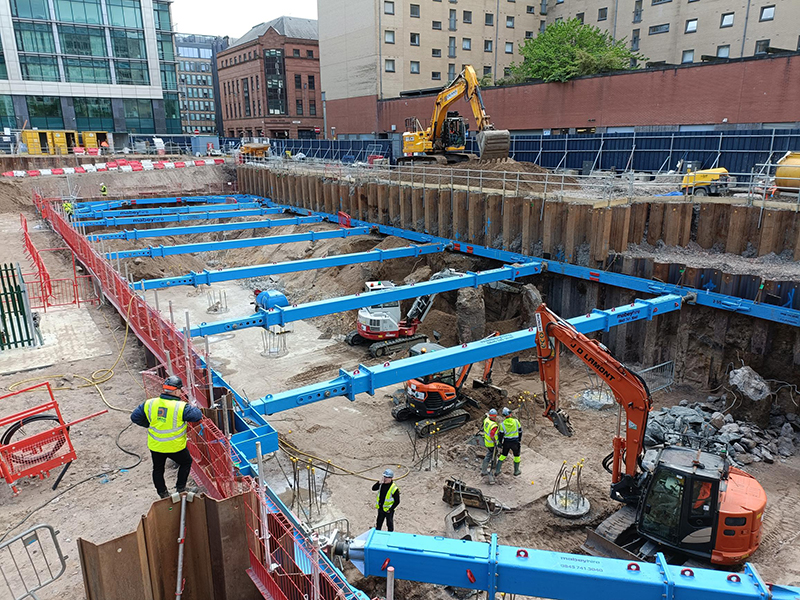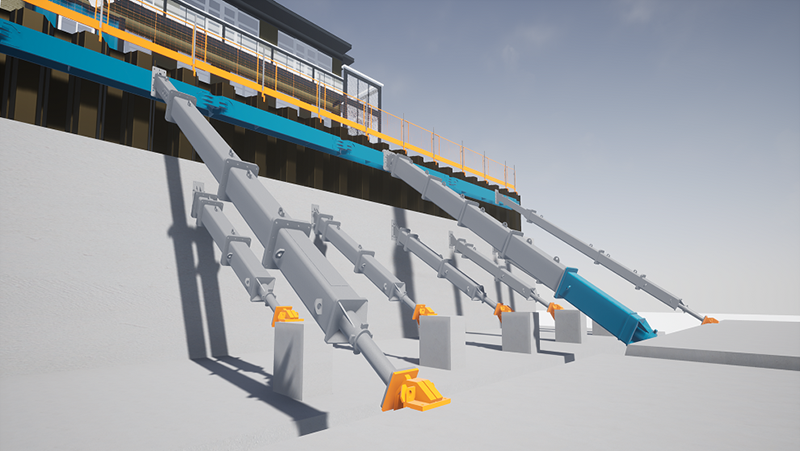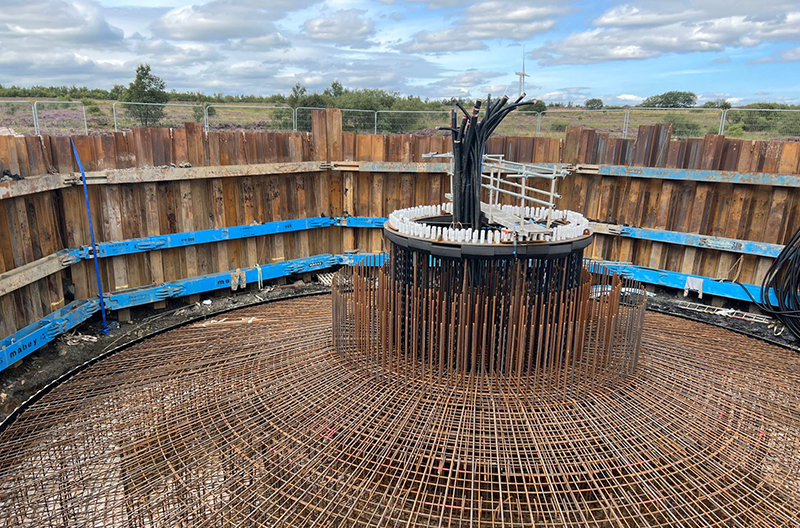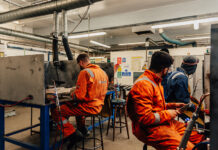
Mabey Hire is a key player in the temporary works industry in Scotland, providing solutions for a wide range of projects. The firm’s Ryan Smillie (design team leader, Scotland) and Jamie McLachlan (regional sales manager, Scotland), answered Project Scotland’s questions on recent developments within the business
Q) What does Mabey Hire offer in Scotland by way of facilities, employees, and engineering expertise?
Ryan: We operate three fully operational depots in Glasgow, Aberdeen, and Inverness, strategically positioned to service all of Scotland. Our team of 34 includes operations, sales, and engineering personnel, encompassing a regional sales desk, yard operatives, HGV drivers, an experienced hydraulics team, and a coded welder. The Glasgow-based engineering team, with over 30 years of combined experience, provides temporary works designs and exceptional customer service across Scotland. Additionally, we are supported by a national resource of over 55 engineers in regional hire, major projects, and digital and development departments.
Jamie: Our team of four sales managers collaborates closely with engineering and operations to address customer needs at all project stages, from feasibility to delivery. With over 25 years of combined experience in the temporary works industry, they ensure seamless project execution and exceptional service.
Q) What sectors do you work in and what are some of the latest engineering solutions and product innovations you offer?
Jamie: Our extensive product portfolio and expertise enable us to engage with clients across various sectors in Scotland, including water, power and energy, rail, highways, infrastructure, distilleries, housing, and general construction. As a valued member of the Scottish Water supply chain for the SR21 programme, we recently exhibited at the annual Scottish Water Supply Chain event in Glasgow. There, we showcased our latest digital engineering capabilities and ESG strategy, aligning with the event’s ‘transformation and innovation’ theme.
Ryan: One of our key business improvement initiatives was the re-launch of our ‘MyConstruct’ standard solutions. By actively listening to client feedback, we refined, modernised, and simplified our suite of solutions. The enhanced offerings, which can be customised to meet specific customer requirements, streamline the design process by reducing turnaround times and ultimately enhancing on-site safety.
Q) How competitive is the temporary works sector in Scotland and how do you stand out in that environment?
Jamie: The temporary works sector in Scotland is highly competitive, with numerous suppliers competing for projects. To build and sustain strong client relationships and secure long-term business aligned with our strategy, it is essential that we provide superior commercial packages, including value engineering, throughout all project stages.
Ryan: Local engineering support, coupled with extensive industry experience and cutting-edge technology, sets us apart from the competition. We are incredibly proud of our smart and emerging technologies and have adopted Autodesk Revit as our standard drafting software. This brings our designs to life in our fully immersive 3D environment, EVE (Engineering, Visualise, Explore), leading the way in the temporary works sector.

Jamie: A key differentiator is our comprehensive turnkey service and extensive product range, enabling us to support clients throughout every project phase. This includes establishing baseline environmental data with our instrumentation products, providing site access solutions through temporary bridging and roadways, delivering ground support, formwork shuttering, and above-ground propping, as well as our specialised major project and installation teams.
Q) Can you provide some examples of standout projects in Scotland you’ve been involved in?
Ryan: Mabey Hire has been integral to numerous standout projects across Scotland, including the design and supply of groundworks equipment for eight wind turbines in North Lanarkshire. These turbines generate power equivalent to the annual needs of over 30,000 homes, displacing over 55,000 tonnes of CO2 each year. Our innovative octagonal framing system reduced waste and construction costs, accommodating excavations ranging from 18-24 metres in diameter and over seven metres deep, while addressing complex ground conditions such as peat and high bedrock.
Jamie: We supported a valued client in the Scottish Water sector by successfully delivering the inaugural project of the Improving Urban Waters (IUW) programme in the Midlothian area. This project involved constructing an offline CSO chamber along with associated pipework and manholes to enhance water quality and mitigate sewage-related debris and overflows. Our engineering, sales, and operations teams collaboratively developed a thorough tender proposal, incorporating contingencies, project-specific KPIs, and service-level agreements.

Q) What are the biggest challenges and opportunities in the near future?
Jamie: We face several challenges as a supplier, particularly due to market conditions resulting from reduced investment in sectors such as housing and highways. To navigate these challenges, it is crucial for us to concentrate on more dynamic sectors, including renewables, water, and rail, with a strategic focus on projects driven by investment programmes supported by both private and public funding.
Ryan: Recruiting engineers for temporary works presents challenges due to its limited exposure in academic courses and perceived lack of appeal. However, the chance to specialise in a dynamic, fast-paced industry with diverse sector applications offers a compelling opportunity for aspiring engineers. To address this, we have developed a pioneering graduate programme designed to help engineers excel in temporary works and build a successful career in civil engineering. Additionally, our STEM initiative engages closely with local schools to inspire students towards careers in civil engineering, with a particular focus on temporary works.
Q) Do you see scope for further growth for the business in Scotland?
Jamie: We are pleased to announce our recent acquisition by the Peri Group, which opens up numerous opportunities for knowledge exchange and investment in product enhancement and development. As a leading supplier of formwork and scaffolding systems, Peri’s expertise aligns closely with our own. This strategic integration will ultimately deliver significant benefits to our customers through enhanced solutions and services.
Ryan: Our investment in initiatives such as the engineering graduate programme underpins our departmental growth and enhances local engineering support, ensuring expert customer service. This is further supported by our ICE-approved training scheme, which guides engineers through to chartership. The Peri acquisition complements these efforts by offering engineers opportunities for global career diversification and professional development.








